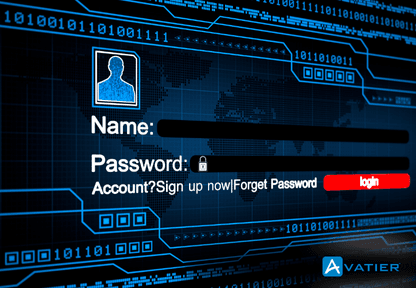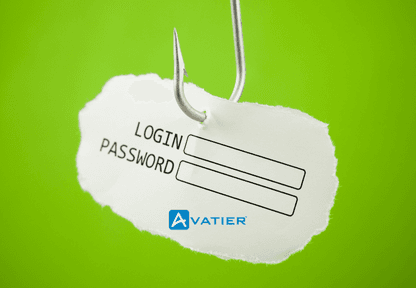August 17, 2025 • Mary Marshall
Why Some Companies Are Moving Away from HIPAA Violation Examples (And What That Means for Identity Management)
Discover why modern healthcare organizations are shifting from reactive HIPAA violation examples to proactive identity management strategies

HIPAA compliance has traditionally been taught through cautionary tales – a litany of violations and their costly consequences. However, forward-thinking organizations are now shifting from these reactive approaches to proactive strategies centered on comprehensive identity and access management (IAM). This paradigm shift represents not just a change in methodology, but a fundamental reimagining of how healthcare organizations approach security and compliance.
The Traditional Approach: Learning from HIPAA Violations
For years, healthcare compliance training has relied heavily on HIPAA violation examples – multi-million-dollar fines, reputation damage, and corrective action plans imposed by the Office for Civil Rights (OCR). These examples were meant to instill vigilance, reminding staff of the consequences of non-compliance.
The statistics underscore why this approach seemed logical:
- The average cost of a healthcare data breach reached $10.93 million in 2023, significantly higher than the cross-industry average of $4.45 million.
- HIPAA violation penalties can reach $1.9 million per violation category annually.
- Since April 2003, the HHS Office for Civil Rights has received over 296,000 HIPAA complaints and has initiated over 1,100 compliance reviews.
However, this traditional approach faces a fundamental flaw: it’s reactive rather than preventive, focusing on the aftermath of breaches rather than preventing them in the first place.
The Shift to Proactive Compliance Through Identity Management
Healthcare organizations increasingly recognize that effective HIPAA compliance isn’t about avoiding punishments—it’s about implementing robust systems that protect patient data by design. This realization has led to a significant shift toward comprehensive identity management solutions.
Why Identity Management is the New Focus
Modern HIPAA HITECH Compliance Solutions focus on identity management as the cornerstone of an effective security strategy, addressing several critical aspects:
- Access Control Precision: Rather than simply warning staff about inappropriate access, advanced identity management systems enforce proper access controls automatically.
- Continuous Compliance: Instead of periodic compliance checks or reactive responses to violations, identity management solutions maintain continuous compliance.
- Automated Audit Trails: Comprehensive logging and reporting capabilities create defensible audit trails that demonstrate due diligence.
- Risk Reduction: By controlling access at the identity level, organizations dramatically reduce the risk of data breaches and HIPAA violations.
An effective HIPAA Compliance Software solution integrates these elements into a unified approach that addresses compliance requirements while providing the operational flexibility healthcare organizations need.
Key Components of the New Approach
1. Automated User Provisioning and Deprovisioning
One of the most significant HIPAA compliance vulnerabilities occurs during employee transitions. According to a Ponemon Institute study, 49% of healthcare organizations experienced data breaches caused by employee negligence, while 21% faced breaches due to malicious insiders.
Modern identity management solutions address this threat with automated user lifecycle management:
- Immediate provisioning of appropriate access when employees join
- Automatic access adjustments when roles change
- Instant deprovisioning when employees leave
These automated workflows eliminate the risk of orphaned accounts and inappropriate access privileges that often lead to HIPAA violations.
2. Zero Trust Architecture Implementation
Forward-thinking healthcare organizations are moving beyond perimeter-based security to zero trust models that verify every access request regardless of source. This approach is particularly valuable given that:
- 59% of healthcare organizations have experienced a third-party data breach
- 41% of healthcare breaches involve privileged credential abuse
A zero trust approach integrated with identity management ensures that users only access what they legitimately need, dramatically reducing the risk surface for potential HIPAA violations.
3. AI-Driven Identity Analytics and Governance
Modern Identity Management Solutions now incorporate advanced AI capabilities that can:
- Detect anomalous access patterns that may indicate compromised credentials
- Identify potentially inappropriate access based on peer group analysis
- Automate access reviews and certifications
- Predict potential compliance issues before they materialize
These capabilities transform identity management from a static, rule-based system to an intelligent, adaptive framework that proactively identifies and mitigates risks.
4. Self-Service Access Request and Password Management
Healthcare professionals often need rapid access to patient information in critical situations. Legacy systems that involve help desk tickets and manual approval processes can create dangerous delays or encourage workarounds that compromise security.
Modern identity management systems address this challenge through:
- Self-service access request portals with automated approvals
- Context-aware authentication that balances security with clinical workflow needs
- Streamlined password management that reduces friction while maintaining security
These capabilities ensure clinicians can access needed information while maintaining compliance with HIPAA’s minimum necessary standard.
The ROI of Shifting from Violation Examples to Prevention
The financial implications of this shift are significant. Organizations implementing comprehensive identity management solutions typically see:
- 80% reduction in access-related help desk tickets
- 60% faster user provisioning and deprovisioning
- 67% reduction in audit preparation time
- Up to 75% decrease in successful phishing attacks
For healthcare organizations, these efficiencies translate directly to compliance cost savings. A report by Okta found that healthcare organizations implementing modern identity solutions reduced their overall compliance costs by 27% on average, with some organizations reporting savings exceeding 40%.
Real-World Implementation: Beyond Theory
Healthcare organizations implementing this new approach typically follow a structured methodology:
1. Identity Governance Assessment
Begin with a comprehensive assessment of existing identity management practices, focusing on:
- Current access provisioning and deprovisioning processes
- Authentication systems and workflows
- Role definitions and access patterns
- Audit capabilities and reporting
This baseline assessment identifies specific vulnerabilities and establishes priorities for implementation.
2. Automated Identity Lifecycle Implementation
Implement automated user provisioning and deprovisioning that coordinates with HR systems to ensure:
- New employees receive appropriate access from day one
- Role changes trigger immediate access adjustments
- Terminated employees lose access instantly
These automated workflows eliminate the manual errors and delays that often lead to HIPAA violations.
3. Access Governance and Certification
Establish regular access certification processes that:
- Verify all access rights remain appropriate
- Identify and remediate access creep
- Document compliance for auditors
- Provide evidence of due diligence
This continuous governance approach replaces periodic “fire drill” compliance checks with sustainable, ongoing compliance management.
4. Identity Analytics Implementation
Deploy advanced identity analytics to:
- Monitor access patterns for anomalies
- Identify potential segregation of duties violations
- Detect credential sharing or misuse
- Predict potential compliance issues before they occur
These capabilities transform compliance from a reactive to a predictive function.
Implications for Different Healthcare Stakeholders
The shift from violation-focused training to proactive identity management affects various stakeholders differently:
For CISOs and Security Leaders
This approach provides:
- Defensible security posture built on identity
- Reduced breach risk through precise access control
- Automated compliance evidence for auditors
- Significant reduction in manual security tasks
CISO-focused identity management solutions deliver these benefits while aligning security with clinical and operational requirements.
For IT Operations
The benefits include:
- Reduced help desk burden through self-service
- Streamlined provisioning and deprovisioning
- Simplified audit response
- Improved user satisfaction
These outcomes translate to both cost savings and improved operational efficiency.
For Compliance Officers
The advantages are substantial:
- Continuous compliance rather than point-in-time assessments
- Comprehensive audit trails for regulatory reviews
- Reduced finding remediation workload
- Proactive identification of compliance issues
This approach transforms compliance from a reactive burden to a proactive, value-adding function.
Conclusion: The Future of HIPAA Compliance
The shift from HIPAA violation examples to comprehensive identity management represents more than a change in tactics—it signals a fundamental reimagining of healthcare compliance. By focusing on prevention through identity governance rather than remediation through cautionary tales, healthcare organizations are building more resilient, compliant environments.
As regulations evolve and threats grow more sophisticated, this proactive approach will likely become the standard for healthcare organizations seeking to protect patient data while improving operational efficiency. The organizations leading this shift today will be better positioned to face tomorrow’s compliance challenges.
For healthcare organizations looking to begin this journey, implementing a comprehensive HIPAA Compliance Checklist Software Solution can provide the foundation for this new approach to compliance—one based not on fear of violations, but on the confidence that comes from robust, identity-centered security.
The question for healthcare organizations is no longer whether to make this shift, but how quickly they can implement the identity management solutions that will form the cornerstone of their future compliance strategy.









